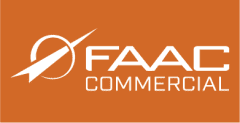Helping Transit Workers Adapt to Emerging Technologies
Published

Zero-emission buses (ZEB) are a vital part of our decarbonized future in the United States. In the US, the transportation sector represents around 27 percent of total greenhouse gas (GHG) emissions, and diesel buses are the primary culprit. According to a 2023 report from the US Department of Transportation, each diesel bus we replace with a ZEB means 140 fewer tons of CO₂ released into the atmosphere each year. That’s the same environmental impact as taking 30 cars off the road. Additionally, because ZEBs have no dangerous tailpipe emissions, deploying a ZEB in place of a diesel bus also eliminates 10 tons of NOx and 350 pounds of diesel particulate—major wins for air quality in the communities those buses serve.
To advance mass transit modernization, the Federal Transit Administration launched a $5 million initiative in 2021 to support the Transit Workforce Center (TWC)—the “first FTA-funded technical assistance center to directly support public transit workforce development. Its mission is to help transit agencies recruit, hire, train, and retain a diverse workforce needed now and in the future.” That includes initiatives to help transit agencies develop their Zero Emission-Workforce Fleet Transition Plan and build workforce skills to support safe and efficient ZEB operations. In the first two years, TWC training has reached more than 7,000 industry professionals and 400 transit agencies.
But so far, these initiatives have largely focused on ZEB and battery-electric bus (BEB) technician training. This is extremely important, but there is more to the successful transition to a zero-emission public transit system than buying a fleet of ZEBs and learning to maintain them. We need to make sure Operators are prepared to safely operate ZEBs on a daily basis.
Comprehensive Support for the Transition to ZEB Mass Transit
Jason Francisco, Transportation Business Manager at FAAC Incorporated, has worked with a wide range of transit agencies to develop and deliver simulation-based training systems for mass transit drivers. He finds that the earlier ZEB operation training begins—and the more comprehensive that training can be—the better.
“Pretty much every agency is looking to streamline training and retraining,” Jason notes. “They have to, in order to offer the quality and breadth of service their communities need and deserve. Meanwhile, so many factors—a tight labor market, a shifting economy, the transition to ZEB—are posing new recruitment, training, and retention challenges.”
Simulation training is especially helpful in the transition to ZEB, both because simulators allow for high-engagement, high-throughput training, and because simulators can be outfitted with ZEB-specific training features.
“You go a long way toward laying the groundwork for success,” Jason points out, “if you can give your operators the experience of driving a zero-emission bus prior to actual deployment. There are so many little differences between operating a ZEB and diesel, it’s easy to get caught flat-footed. Battery-electric buses are heavier than traditional diesel buses. They have different handling characteristics. The range is different, and changes with the weather. Drivers need a chance to get comfortable, and develop all those little nuances and habits that are part of battery management and dealing with range anxiety.”
Every FAAC mass transit bus driving simulator includes the newest version of VITALS featuring the VITALS Regen Dashboard for electric buses. This unique training feature graphs and maps how the trainee’s acceleration and braking behavior affect the electric bus’s battery state-of-charge and range throughout the driving scenario. After every training drive, the operator gets immediate visual feedback. This makes it much easier to develop new driving habits and make the most of electric bus range.
Looking to accelerate your ZEB deployment with simulation training? FAAC’s expert simulation training team is here to help.

